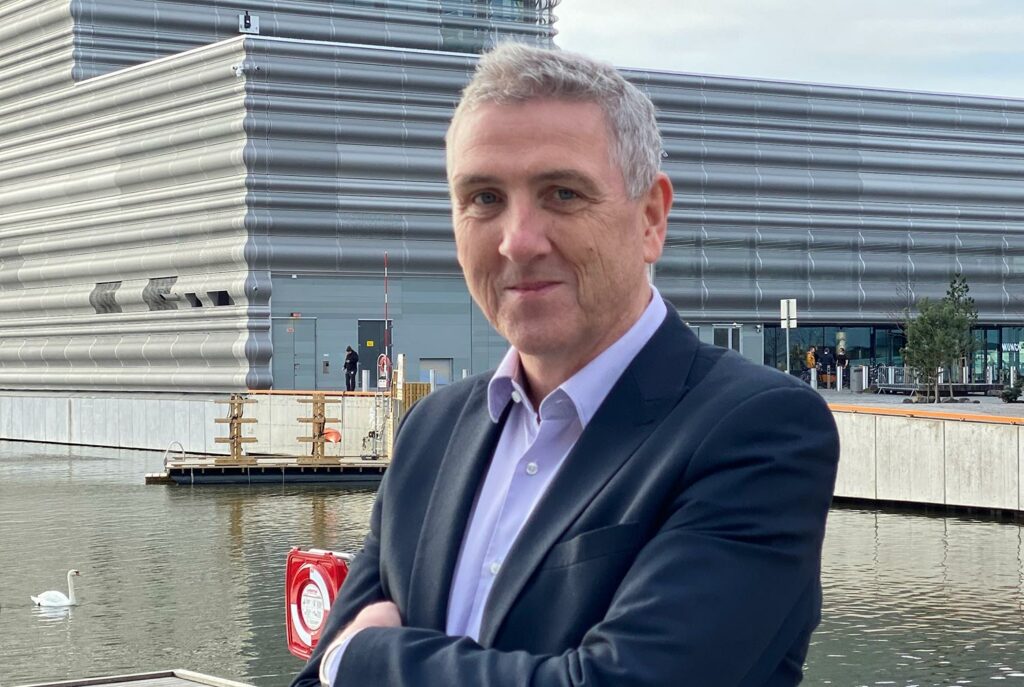
Steven Rafferty, CEO of Cermaq
The sustainable transition of the food system is a top priority for Cermaq, a leading global salmon producer. Still, it wasn’t immediately clear to CEO Steven Rafferty that SeaBOS was the right forum for Cermaq’s efforts in this area. Today, he enthusiastically champions SeaBOS’ ability to drive development forward on a larger scale.
Cermaq is a globally leading producer of salmon operating in Norway, Chile, and Canada. Cermaq’s sustainable operations rest on two pillars, firstly: the quality and safety of its products, and secondly: fish health and welfare and the footprint of its production.
When Steven Rafferty became CEO of Cermaq in 2019, the company was already a SeaBOS member. “I must admit that I was not convinced of that being the right priority,” recalls Rafferty. “However, as I have learned how SeaBOS works, I have become a warm supporter of Cermaq’s active participation in the organization.”
For a CEO it is easy to focus solely on the bottom line, but as the leader of a large, globally leading company Steven Rafferty recognizes the need to take responsibility beyond Cermaq’s direct operations: “Why? Because we have the capacity, and the competence to do so, and together we can make a change that the world needs. I see this as a moral obligation.”
Producing sustainable seafood while ensuring a healthy ocean
According to Rafferty, seafood should be a larger part of our diet. “Pricewise, salmon is a high-end product and is not the seafood that will ‘feed the world’, but for the many countries that have a high consumption of meat, salmon may play an important role in food transition. Replacing red meat with salmon would be beneficial both for the health of people and the planet. I am proud that Cermaq provides millions of healthy meals every day to the global market.”
Salmon is a quality product, rich in marine Omega 3 fatty acids, proteins, and vitamins. It’s simple to prepare and fits into many cuisines.
“Jacques Cousteau, the famous oceanographer once famously said: ‘We must plant the sea and herd its animals using the sea as farmers instead of hunters. That is what civilization is all about – farming replacing hunting.´ And I totally agree,” says Rafferty.
Aquaculture is a sustainable way to produce healthy food for a growing population. “But it must be done right,” says Rafferty. “We must cooperate, share learnings, and develop new knowledge, across companies and throughout the many value chains. Cermaq was the first company to present an audited GRI sustainability report. Transparency remains key to Cermaq, but our focus is on performance and continuous improvement.”
Collaboration with experts to produce change on a global scale
Within SeaBOS, many of the largest seafood companies in the world collaborate with scientists from leading institutions, coordinated by the Stockholm Resilience Centre. The organization addresses topics such as IUU, biodiversity losses, antimicrobial resistance, climate resilience and ocean plastic.
“These topics are related to Cermaq in various ways, but as a whole, they are fundamental for improving ocean health. And hence the future for people and companies,” says Rafferty. “The way that SeaBOS companies work with internationally leading scientists, adding loads of competence to our work, trust in our findings and messages, and recognition by national and global decision-makers, is key.”
Without brave decisions at the national and global levels, climate actions and food transition will not take place in the time frame we have before ongoing changes will have severe, irreversible impacts. In all areas where SeaBOS engages, a part of Cermaq’s action is working with national and global decision-makers, in Governments, administrations, and international organizations.
“I hope that through SeaBOS we can urge and support decision-makers to make the decisions needed for us all to cope with the global biodiversity and climate challenges that affect each and every one of us.”
